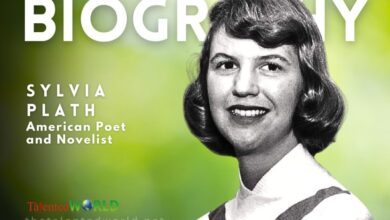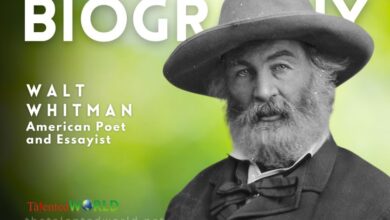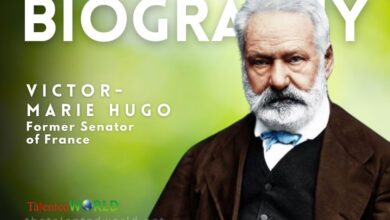
Quick Facts
| Fact | Detail |
|---|---|
| Full Name | Stephen Edwin King |
| Date of Birth | September 21, 1947 |
| Age | 76 |
| Place of Birth | Portland, Maine, U.S. |
| Occupation | Author |
| Alma Mater | University of Maine (BA) |
| Period | 1967–present |
| Genres | Horror, fantasy, supernatural fiction, drama, gothic, genre fiction, dark fantasy, post-apocalyptic fiction, crime fiction, suspense, thriller |
| Spouse | Tabitha Spruce (m. 1971) |
| Children | 3, including Joe and Owen |
| Pseudonyms | Richard Bachman, John Swithen, Beryl Evans |
| Notable Debut | Carrie (1974) |
| Notable Works | The Shining, The Stand, Pet Sematary, Misery, The Green Mile, Rita Hayworth and Shawshank Redemption, The Dark Tower series, It |
| Notable Awards | Bram Stoker Awards, August Derleth Awards, Medal for Distinguished Contribution to American Letters (2003), Grand Master Award from the Mystery Writers of America (2007) |
| Notable Nonfiction | On Writing: A Memoir of the Craft |
| Influences | Film, comic books, H. P. Lovecraft, Richard Matheson |
| Early Life | Born in Portland, Maine; father left when he was two; raised by single mother in various locations; started writing at a young age; influenced by film and reading |
Stephen King Books
| Title | Year |
|---|---|
| It | 1986 |
| The Shining | 1977 |
| Holly | 2023 |
| Carrie | 1974 |
| The Stand | 1978 |
| Pet Sematary | 1983 |
| The Outsider | 2018 |
| Misery | 1987 |
| The Green Mile | 1996 |
| Fairy Tale | 2022 |
| Rita Hayworth and Shawshank Redemption | 1982 |
| Under the Dome | 2009 |
| You Like It Darker: Stories | 2024 |
| Cujo | 1981 |
| The Mist | 1980 |
| ‘Salem’s Lot | 1975 |
| The Institute | 2019 |
| Gerald’s Game | 1992 |
| Christine | 1983 |
| On Writing: A Memoir of the Craft | 2000 |
| The Running Man | 1982 |
| Rage | 1977 |
| Mr. Mercedes Trilogy | 2014 |
| The Long Walk | 1979 |
| The Dark Tower: The Gunslinger | 1982 |
| Billy Summers | 2021 |
| 1922 | 2010 |
| Night Shift | 1978 |
| Doctor Sleep | 2013 |
| Desperation | 1996 |
| Needful Things | 1991 |
| Different Seasons | 1982 |
| 1408 | 1999 |
| 11/22/63 | 2011 |
| Insomnia | 1994 |
| The Dead Zone | 1979 |
| Firestarter | 1980 |
| Later | 2021 |
| If It Bleeds | 2020 |
| Cell | 2006 |
| Skeleton Crew | 1985 |
| The Talisman | 1984 |
| The Boogeyman | 1978 |
| Dreamcatcher | 2001 |
| Revival | 2014 |
| Thinner | 1984 |
| The Tommyknockers | 1987 |
| The Eyes of the Dragon | 1984 |
| The Jaunt | 1981 |
| Joyland | 2013 |
| Bag of Bones | 1998 |
Stephen King Movies
| Title | Year |
|---|---|
| It | 2017 |
| It Chapter Two | 2019 |
| The Shining | 1980 |
| The Shawshank Redemption | 1994 |
| Pet Sematary | 1989 |
| Stand by Me | 1986 |
| The Mist | 2007 |
| Misery | 1990 |
| The Green Mile | 1999 |
| Carrie | 1976 |
| Doctor Sleep | 2019 |
| The Dark Tower | 2017 |
| Thinner | 1996 |
| Maximum Overdrive | 1986 |
| Children of the Corn | 1984 |
| Cujo | 1983 |
| 1408 | 2007 |
| Gerald’s Game | 2017 |
| Christine | 1983 |
| The Boogeyman | 2023 |
| Sleepwalkers | 1992 |
| A Good Marriage | 2014 |
| Cell | 2016 |
| The Dead Zone | 1983 |
| 1922 | 2017 |
| In the Tall Grass | 2019 |
| Creepshow | 1982 |
| The Running Man | 1987 |
| Dolores Claiborne | 1995 |
| Cat’s Eye | 1985 |
| Needful Things | 1993 |
| Bag of Bones | 2011 |
| Creepshow 2 | 1987 |
| Salem’s Lot | |
| Pet Sematary: Bloodlines | 2023 |
| Secret Window | 2004 |
| Silver Bullet | 1985 |
| Mr. Harrigan’s Phone | 2022 |
| Firestarter | 2022 |
| Apt Pupil | 1998 |
| Pet Sematary Two | 1992 |
| Stephen King’s Desperation | 2006 |
| Dreamcatcher | 2003 |
| Room 237 | 2012 |
| Sometimes They Come Back | 1991 |
| The Dark Half | 1993 |
| Riding the Bullet | 2004 |
| The Rage: Carrie 2 | 1999 |
| Graveyard Shift | 1990 |
| Hearts in Atlantis | 2001 |
| The Lawnmower Man | 1992 |





